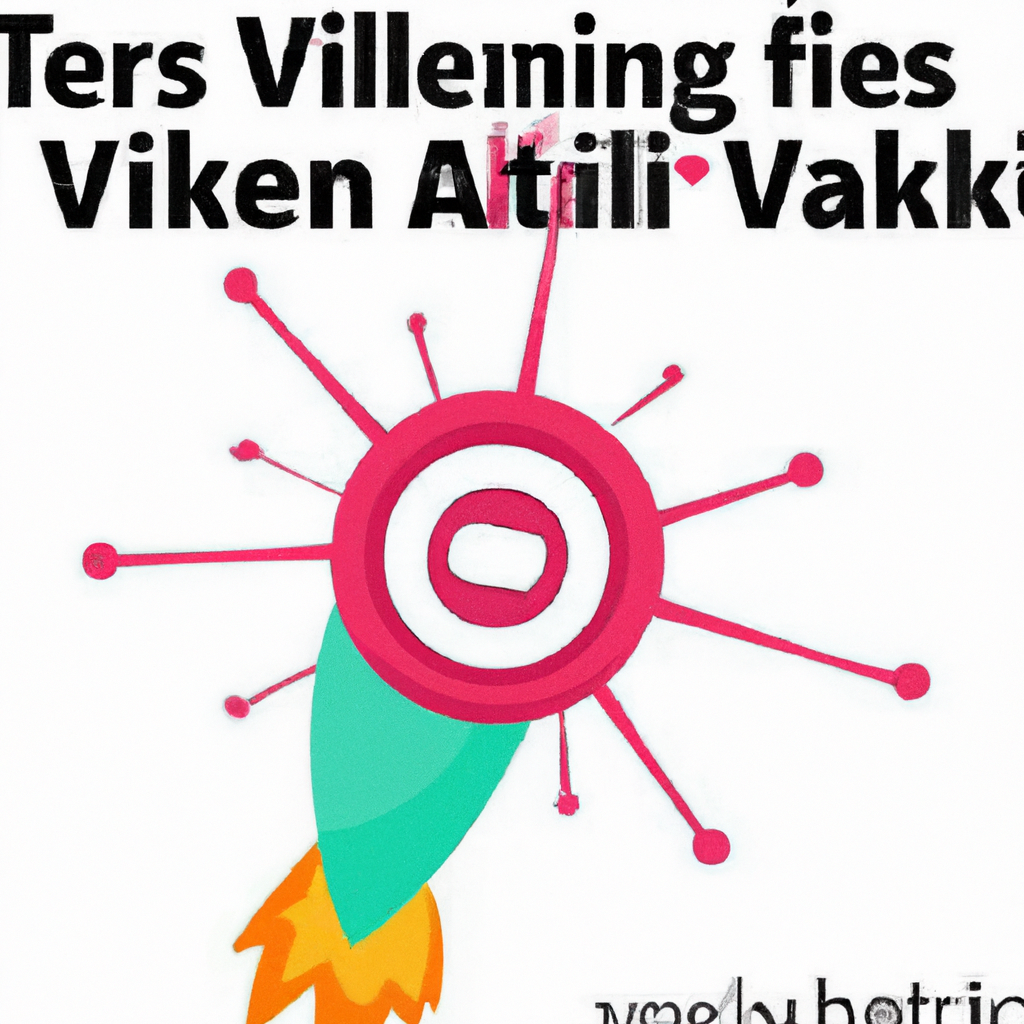Have you ever wondered what viral marketing is all about and how you can create content that goes viral? In this article, we will explore the fascinating world of viral marketing, its definition, and the secrets behind creating content that captures people’s attention and spreads like wildfire on the internet. Get ready to uncover the magic behind viral marketing and discover how you can harness its power to reach a wider audience and make a lasting impact.
What is Viral Marketing?
Viral marketing is a marketing strategy that aims to spread a message, idea, or product rapidly through word-of-mouth and online sharing. It involves creating highly shareable content that grabs people’s attention and encourages them to share it with others. The goal of viral marketing is to create a buzz and generate massive exposure for a brand without the need for extensive advertising or promotional efforts.
Definition of Viral Marketing
Viral marketing is the process of promoting a brand or product through the circulation of content that is shared rapidly and extensively by people. It relies on the power of social networks, online communities, and word-of-mouth to reach a large audience in a short period of time. The term “viral” refers to how the content spreads like a virus, quickly and easily.
Characteristics of Viral Marketing
There are several key characteristics that define viral marketing:
-
Shareability: Viral content needs to be easily shareable so that people can pass it along to their friends, family, and acquaintances. It should be simple to share on social media platforms, through email, or via messaging apps.
-
Emotional Appeal: Viral content often taps into people’s emotions, whether through humor, inspiration, surprise, or other strong emotions. It evokes a reaction that compels people to share it with others.
-
Novelty: Viral marketing relies on creating something unique or surprising that stands out from the crowd. It could be a groundbreaking idea, an unexpected twist, or a fresh take on a common topic.
-
Authenticity: People are more likely to share content that feels genuine and authentic. Viral marketing campaigns should aim to create an honest and trustworthy brand image that resonates with their target audience.

The Power of Word-of-Mouth
Word-of-mouth has always been a powerful tool for marketing, and viral marketing capitalizes on its potential. When people come across something they find interesting, entertaining, or useful, they are likely to share it with others. This creates a ripple effect, as the content is spread from person to person, resulting in exponential reach and engagement.
Word-of-mouth is influential because people trust recommendations from their peers more than traditional advertising. They perceive information coming from friends or family as more genuine and reliable. This makes viral marketing an effective strategy for gaining trust and building brand awareness.
Types of Viral Marketing
There are different types of viral marketing strategies that businesses can employ to create viral content and generate buzz:
-
Video Viral Marketing: Videos have a high potential to go viral due to their engaging and visual nature. Memorable commercials, funny skits, or emotional storytelling can often capture the attention of viewers and be shared widely.
-
Image-Based Viral Marketing: Eye-catching and visually appealing images or memes can quickly gain traction on social media platforms. Images that evoke strong emotions, convey a powerful message, or create humor are more likely to be shared.
-
Social Media Challenges: Social media challenges often involve people posting videos or pictures of themselves participating in a specific activity or trend. Challenges that are easy to participate in, entertaining, or for a good cause can spread rapidly through social networks.
-
Influencer Marketing: Collaborating with popular influencers or celebrities can help spread the word about a product or brand. When influencers share content related to a brand, their followers are more likely to engage with and share it, leading to increased exposure.

Importance of Viral Marketing
Viral marketing offers several benefits that make it an essential strategy for businesses:
-
Cost-Effectiveness: Viral marketing can generate significant exposure with minimal financial investment. Compared to traditional advertising methods, creating viral content and leveraging the power of social sharing can result in substantial returns on investment.
-
Massive Reach: Viral marketing has the potential to reach a vast audience in a short amount of time. When the content is shared across different online platforms, it can reach people from diverse backgrounds and locations, increasing brand visibility.
-
Increased Engagement: Viral content often sparks conversations and engagement among individuals, leading to increased interaction with the brand. This can ultimately result in higher brand loyalty and a boost in customer acquisition.
-
Brand Awareness: Creating viral content exposes a brand to a wider audience and helps establish brand recognition. By delivering a memorable and impactful message, viral marketing can position a brand as innovative, relevant, and worth paying attention to.
Examples of Successful Viral Marketing Campaigns
Numerous successful viral marketing campaigns have captured the attention of online users and gained immense popularity. Some notable examples include:
-
ALS Ice Bucket Challenge: This social media challenge involved participants pouring a bucket of ice water over themselves to support and raise awareness for ALS (Amyotrophic lateral sclerosis). The campaign went viral on various social media platforms, resulting in millions of videos and donations.
-
Dollar Shave Club: This viral marketing campaign featured a humorous and engaging video showcasing the benefits of the subscription-based razor service. The video gained widespread attention and helped the company rapidly grow its customer base.
-
Old Spice “The Man Your Man Could Smell Like”: This humorous and memorable commercial featuring an attractive spokesperson became a viral sensation. The campaign successfully repositioned the Old Spice brand and garnered millions of views and shares.

Challenges in Viral Marketing
While viral marketing can lead to significant rewards, there are also challenges that marketers must navigate:
-
Unpredictability: The viral nature of content makes it difficult to predict or guarantee that it will go viral. Even with careful planning and execution, there’s always an element of uncertainty regarding the success of a viral marketing campaign.
-
Content Fatigue: With the proliferation of content on the internet, standing out and capturing people’s attention becomes increasingly challenging. Creating unique and fresh content that resonates with the target audience is crucial to combat content fatigue.
-
Negative Feedback: Viral content opens the door for both positive and negative feedback. The viral nature of the content means that negative comments or unfavorable reactions can quickly spread, potentially damaging the brand’s reputation.
Measuring the Success of a Viral Marketing Campaign
Measuring the success of a viral marketing campaign requires tracking various metrics:
-
Reach: Monitor the number of views, shares, and impressions to gauge the reach and exposure of the viral content.
-
Engagement: Track the likes, comments, and interactions generated by the viral content to understand the level of engagement it has generated.
-
Conversion: Analyze the conversion rate of the viral campaign by tracking the actions users take after interacting with the content, such as subscribing, purchasing, or signing up.
-
Brand Mentions: Keep an eye on online discussions and mentions of the brand or the viral content to assess its impact on brand awareness and perception.

Creating Viral Content
To create content with the potential to go viral, consider the following tips:
-
Understand Your Audience: Research and identify what resonates with your target audience. Tailor your content to their interests, preferences, and values.
-
Evoke Emotion: Develop content that elicits strong emotions such as humor, joy, surprise, or empathy. Emotional content is more likely to be shared.
-
Keep It Simple: Make the content easy to understand and share. Avoid complex or lengthy messages that may deter people from passing it on.
-
Tap into Trends: Stay up-to-date with current trends and include elements that are relevant and timely. This can increase the chances of your content being shared in the context of ongoing conversations.
Tips for Effective Viral Marketing
To maximize the success of your viral marketing efforts, consider the following tips:
-
Plan Ahead: Create a well-thought-out strategy that aligns with your overall marketing objectives. Define clear goals, target audience, and desired outcomes for your viral campaign.
-
Utilize Social Networks: Leverage popular social media platforms to share your content and engage with potential viral content consumers.
-
Encourage Sharing: Incorporate clear calls-to-action that prompt viewers to share the content with their friends and followers. Make it easy for users to share the content on multiple platforms.
-
Collaborate with Influencers: Collaborate with influential individuals in your niche to amplify the reach and impact of your viral campaign. Their endorsement and shares can significantly boost your campaign’s success.
In conclusion, viral marketing is a powerful strategy that relies on the rapid sharing of content to generate significant brand exposure and recognition. By creating shareable and engaging content that resonates with the target audience, brands can capitalize on the power of word-of-mouth and reach a large audience in a short amount of time. While viral marketing presents its challenges, the benefits, such as cost-effectiveness, massive reach, increased engagement, and brand awareness, make it a strategy worth exploring for businesses aiming to make their mark in the competitive digital landscape.












